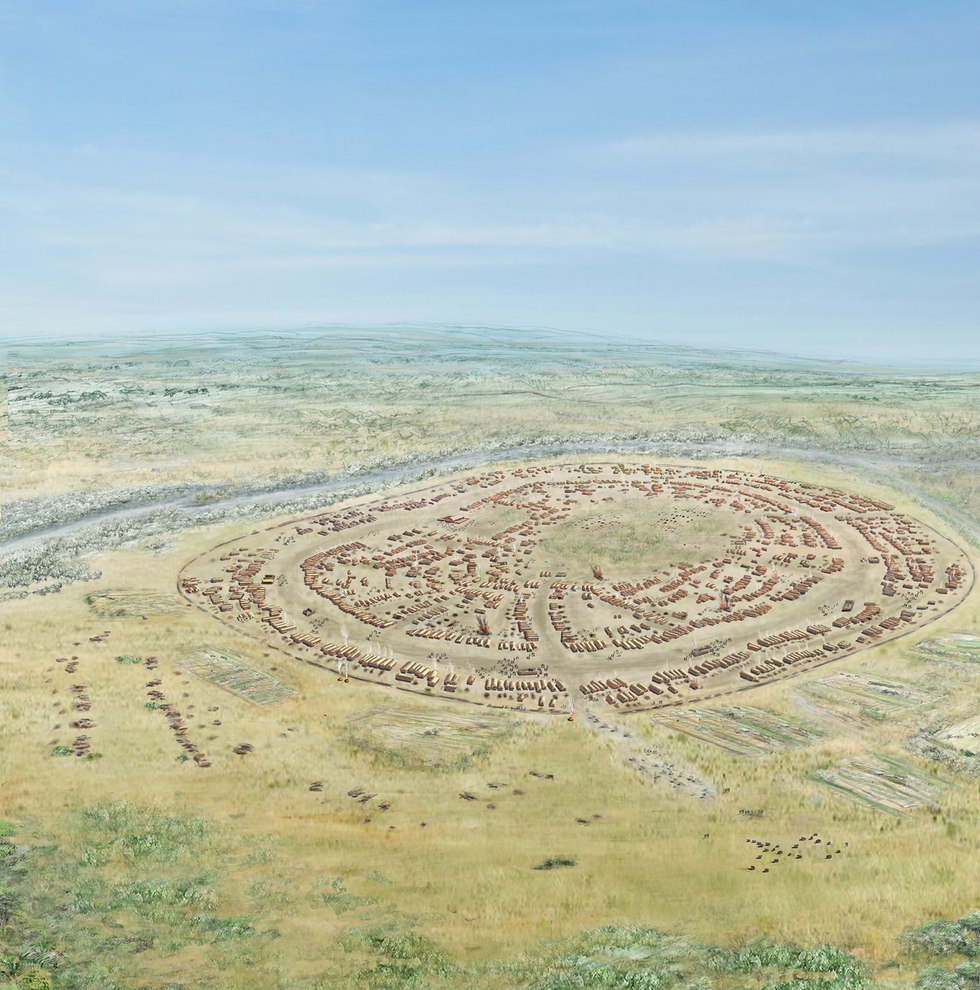Archaeologists make huge discovery of forgotten city that mysteriously disappeared
Scientists said the discovery could completely change understanding of how human civilisation first started
Don't Miss
Most Read
Trending on GB News
New research has revealed a discovery that could completely change understanding of how human civilisation formed.
For decades, it was believed that the first cities emerged in Mesopotamia or Central Asia in around 3800 BCE, with thousands of people living in close proximity, sustained by food produced in the surrounding hinterland and engaged in trade.
However, new research has suggested the first cities may have emerged in Ukraine.
Researchers describe the surprising remnants of what may have been "the largest city in the world," discernible today only through aerial shadows and scattered pottery shards.

Reconstruction of the main occupation phase of the Cucuteni-Trypillia mega-site
WIkiCommons
Researchers have uncovered evidence of settlements dating back to 4000 BCE that may have housed more than 10,000 people, according to reports published in Swiss Neue Zürcher Zeitung.
Signs of a settlement first appeared in the Soviet 1960s when military topographer Konstantin Shishkin was examining aerial photographs of Ukraine when he noticed unusual shadows on the ground. These shadows were caused by differences in plant growth due to buried archaeological remains.
It wasn’t until the 1970s that Ukrainian scientists launched a research campaign that required creative strategy as excavating a site of that size proved to be difficult. Scientists used a method known as geomagnetism which utilises measurement of very small changes in the Earth's magnetic field caused by structures hidden in the ground and the iron particles they contain.
The so-called Cucuteni-Tripillja was named in 1885 after two sites, Cucuteni in Romania and Tripillja in the Ukraine, 40 kilometers south of Kyiv.
LATEST DEVELOPMENTS

Characteristic example of Cucuteni–Trypillia pottery
WikiCommons
For a long time, Uruk - in what is now Iraq - was considered the first city in the world. In the 4th millennium BC, people lived here who did not have to farm themselves and got their food from the surrounding hinterland.
Now, researchers said they are considering referring to the settlement in Ukraine as a "city" making it the first in global history.
Archaeologist from the University of Kiel Johannes Müller says: "When I started researching the Tripillia sites in 2012, I never thought I would call them 'cities'...[now] that is beyond question for me. A city requires a concept. And here, planning is evident from the very beginning.
"The decisive factor for me is not that they are huge settlements, but that you no longer know the people who live 1.5 kilometers away in the same settlement."
However, the mystery remains of what happened to the civilisation and why it collapsed as scientists say there is no evidence of any outside interference or invasion.
Müller theorises: "The reason for the collapse was what was not done...Apparently, bureaucratization did not take hold as much as it did in Mesopotamia."








